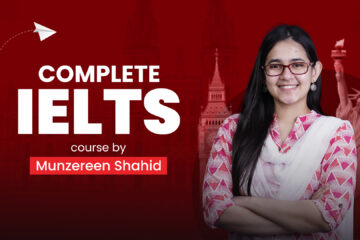Are you dreaming of studying abroad or landing that dream job? Then, you probably know the IELTS (International English Language Testing System) is your golden ticket. But just having a ticket isn’t enough, right? You want the best seat in the house – the highest possible score! In Bangladesh, achieving a top IELTS score can open doors to incredible opportunities. So, how do you get there? Let’s dive in and explore how you can achieve top marks on your IELTS exam and make your dreams a reality.
Understanding the IELTS and Its Scoring System
First things first, let’s break down what the IELTS is all about. Think of it as a comprehensive English language exam that assesses your abilities in four key areas: Listening, Reading, Writing, and Speaking. Each section is scored individually, and then an overall band score is calculated.
How is the IELTS Scored?
The IELTS uses a band score system ranging from 0 to 9, with 9 being the highest. Each section (Listening, Reading, Writing, and Speaking) receives a band score, and the average of these scores determines your overall band score. Here’s a quick rundown:
- Band 9: Expert User – You have fully operational command of the language.
- Band 8: Very Good User – You have fully operational command of the language with only occasional unsystematic inaccuracies and inappropriacies.
- Band 7: Good User – You have operational command of the language, though with occasional inaccuracies, inappropriacies, and misunderstandings in some situations.
- Band 6: Competent User – You have generally effective command of the language despite some inaccuracies, inappropriacies, and misunderstandings.
- Band 5: Modest User – You have partial command of the language, coping with overall meaning in most situations, though likely to make many mistakes.
- Band 4: Limited User – Your basic competence is limited to familiar situations.
- Band 3: Extremely Limited User – You convey and understand only general meaning in very familiar situations.
- Band 2: Intermittent User – You have great difficulty understanding spoken and written English.
- Band 1: Non-User – You essentially have no ability to use the language.
- Band 0: Did Not Attempt the Test – You did not answer the questions.
Think of it like a video game – each level (band) requires more skill and mastery. Aim for the highest level to unlock the best rewards!
What is a Good IELTS Score in Bangladesh?
This depends on your goals! Different universities and institutions have different score requirements. Generally, a band score of 6.5 or higher is considered a good score for academic purposes. However, some prestigious universities and professional organizations might require a band score of 7 or even higher.
Imagine you’re applying for a scholarship to a top university. A score of 7.5 or 8 could significantly increase your chances. So, do your research and find out what score you need to achieve your specific dreams.
Strategies to Achieve the Highest IELTS Score
Okay, so you know what the IELTS is and what score you need. Now, let’s get down to the nitty-gritty – how to actually achieve that high score. It’s not about magic; it’s about smart strategies and consistent effort.
Mastering the Listening Section
The Listening section can feel like a whirlwind of accents and information. But don’t panic! Here’s how to tame the beast:
- Practice with Authentic Materials: Ditch the textbooks sometimes and listen to podcasts, news broadcasts, and English-language movies or TV shows. This will help you get used to different accents and speaking styles. Think of it as training your ear muscles!
- Active Listening is Key: Don’t just passively listen; actively try to understand the context, identify keywords, and anticipate what the speaker might say next.
- Note-Taking Strategies: Develop a system for taking quick, effective notes. Focus on keywords, dates, names, and places.
- Don’t Get Stuck on One Question: If you miss something, don’t dwell on it. Move on to the next question. You don’t want to miss out on easy points because you’re stuck on a tough one.
- Familiarize Yourself with Question Types: Practice with different types of questions, such as multiple choice, matching, and form completion.
Conquering the Reading Section
The Reading section can be daunting with its long passages and tricky questions. But fear not! Here’s how to become a reading ninja:
- Skimming and Scanning: Learn to quickly skim passages to get the gist and scan for specific information. This will save you valuable time.
- Understanding Question Types: Familiarize yourself with different question types, such as True/False/Not Given, Yes/No/Not Given, and multiple choice.
- Vocabulary Building: A strong vocabulary is essential for understanding the passages. Make a habit of learning new words and their meanings.
- Practice Regularly: The more you read, the better you’ll become at understanding complex texts. Read newspapers, magazines, and books in English.
- Time Management: Practice reading passages under timed conditions to improve your speed and accuracy.
Excelling in the Writing Section
The Writing section is where you showcase your ability to express your ideas clearly and effectively in English. Here’s how to write your way to success:
- Understand the Task Requirements: Carefully read the instructions and understand what you’re being asked to do.
- Plan Your Essay: Before you start writing, take a few minutes to plan your essay. This will help you organize your thoughts and ensure that your essay is coherent and well-structured.
- Use a Variety of Sentence Structures: Don’t just write simple sentences. Use a variety of sentence structures to make your writing more interesting and engaging.
- Avoid Grammatical Errors: Pay attention to grammar and spelling. Proofread your essay carefully before you submit it.
- Practice, Practice, Practice: The more you write, the better you’ll become. Write essays on a variety of topics and get feedback from a teacher or tutor.
Writing Task 1: Describing Visual Information
In Task 1 (Academic), you’ll be asked to describe a graph, chart, table, or diagram. The key is to present the information accurately and objectively.
- Identify Key Trends: Look for the main trends and patterns in the visual.
- Use Precise Language: Use specific language to describe the data, such as “increased significantly,” “decreased slightly,” or “remained stable.”
- Avoid Personal Opinions: Don’t include your own opinions or interpretations of the data.
- Write a Clear Overview: Start with a clear overview of the main features of the visual.
Writing Task 2: Essay Writing
In Task 2, you’ll be asked to write an essay in response to a given topic. This is your chance to showcase your ability to think critically and express your ideas persuasively.
- Understand the Question: Carefully read the question and make sure you understand what you’re being asked to do.
- Develop a Clear Thesis Statement: Your thesis statement should clearly state your main argument or point of view.
- Support Your Arguments with Evidence: Use evidence, examples, and reasoning to support your arguments.
- Organize Your Essay Logically: Use clear paragraphs and transitions to organize your essay logically.
Shining in the Speaking Section
The Speaking section is your opportunity to demonstrate your fluency and accuracy in spoken English. Here’s how to make a great impression:
- Speak Clearly and Fluently: Speak at a natural pace and try to avoid hesitations and pauses.
- Use a Wide Range of Vocabulary: Use a variety of vocabulary to express your ideas clearly and accurately.
- Correct Your Mistakes: If you make a mistake, correct yourself immediately.
- Practice with a Partner: Practice speaking with a friend, teacher, or tutor.
- Relax and Be Yourself: The examiner is not looking for perfection. Just relax and be yourself.
Speaking Part 1: Introduction and Interview
In Part 1, the examiner will ask you general questions about yourself, your interests, and your experiences.
- Be Prepared to Answer Common Questions: Practice answering common questions about your hobbies, your family, your job, and your studies.
- Give Detailed Answers: Don’t just give one-word answers. Elaborate on your answers and provide details.
- Show Enthusiasm: Show enthusiasm and interest in the conversation.
Speaking Part 2: Cue Card
In Part 2, you’ll be given a cue card with a topic to talk about for two minutes.
- Prepare a Plan: Take a minute to prepare a plan before you start speaking.
- Speak for the Full Two Minutes: Try to speak for the full two minutes.
- Use a Variety of Language: Use a variety of vocabulary and grammar to express your ideas.
Speaking Part 3: Discussion
In Part 3, the examiner will ask you more abstract questions related to the topic in Part 2.
- Express Your Opinions: Express your opinions and support them with reasons and examples.
- Engage in a Discussion: Engage in a discussion with the examiner.
- Listen Carefully to the Questions: Listen carefully to the questions and make sure you understand what you’re being asked to do.
Common Mistakes to Avoid
Even with the best preparation, it’s easy to make mistakes on the IELTS exam. Here are some common pitfalls to avoid:
- Not Reading the Instructions Carefully: Always read the instructions carefully before you start each section.
- Misunderstanding the Questions: Make sure you understand what the questions are asking before you answer them.
- Running Out of Time: Manage your time effectively and don’t spend too long on any one question.
- Making Careless Errors: Proofread your work carefully to catch any careless errors.
- Panicking: Stay calm and focused during the exam.
Resources Available in Bangladesh
Luckily, there are plenty of resources available in Bangladesh to help you prepare for the IELTS exam:
- IELTS Preparation Centers: Many centers offer comprehensive IELTS preparation courses.
- Online Courses and Materials: Numerous online resources, including practice tests, tutorials, and sample questions, are available.
- English Language Tutors: A private tutor can provide personalized instruction and feedback.
- Libraries: Libraries often have a collection of IELTS preparation books and materials.
- British Council: The British Council is a great resource for information about the IELTS exam and preparation materials.
Frequently Asked Questions (FAQs) about IELTS in Bangladesh
Let’s address some common questions that aspiring IELTS test-takers in Bangladesh often have.
What is the IELTS exam fee in Bangladesh?
The IELTS exam fee in Bangladesh can vary slightly depending on the test center and the type of IELTS exam (Academic or General Training). However, it typically ranges from BDT 17,250 to BDT 17,850. It’s always best to check the official IELTS website or contact the test center directly for the most up-to-date fee information.
Think of it as an investment in your future. That fee can unlock opportunities worth far more in the long run!
How can I register for the IELTS exam in Bangladesh?
You can register for the IELTS exam online through the official IELTS website or at an authorized IELTS test center in Bangladesh. The British Council and IDP are the main organizations that conduct IELTS exams in Bangladesh. You’ll need to provide your personal information, choose your preferred test date and location, and pay the exam fee.
What documents do I need to bring to the IELTS exam?
On the day of the IELTS exam, you’ll need to bring your original passport or National ID card, which you used during registration. Make sure the identification document is valid and has your photograph and signature. You’ll also need to bring your IELTS registration confirmation.
How long is the IELTS score valid?
Your IELTS score is valid for two years from the test date. If you’re applying to universities or organizations, make sure your score is still valid when you submit your application.
What happens if I don’t get the desired IELTS score?
If you don’t achieve your desired IELTS score, don’t be discouraged! You can retake the exam. Analyze your previous performance, identify your weaknesses, and focus on improving those areas. Many people take the IELTS more than once to achieve their target score.
Is there any age limit to take the IELTS exam?
No, there is no age limit to take the IELTS exam. Anyone who needs to demonstrate their English language proficiency can take the test, regardless of their age.
How long does it take to prepare for the IELTS exam?
The amount of time it takes to prepare for the IELTS exam varies depending on your current English language proficiency and your target score. Some people may need a few weeks of preparation, while others may need several months. It’s important to assess your strengths and weaknesses and create a study plan that works for you.
Can I use a pen or pencil for the IELTS exam?
For the Listening and Reading sections, you must use a pencil to mark your answers on the answer sheet. For the Writing section, you can use either a pen or a pencil. However, it’s generally recommended to use a pen for the Writing section, as it’s easier to read and makes a better impression.
What is the format of the IELTS exam?
The IELTS exam has four sections: Listening, Reading, Writing, and Speaking. The Listening and Reading sections are the same for both Academic and General Training versions of the test. The Writing and Speaking sections differ slightly depending on whether you’re taking the Academic or General Training version. The Speaking section is conducted face-to-face with an examiner.
How can I improve my vocabulary for the IELTS exam?
Building a strong vocabulary is essential for success on the IELTS exam. Read widely in English, including newspapers, magazines, and books. Make a habit of learning new words and their meanings. Use flashcards, vocabulary apps, and online resources to help you expand your vocabulary. Pay attention to the context in which words are used and try to use new words in your own writing and speaking.
Think of your vocabulary as a toolbox. The more tools you have, the better equipped you’ll be to tackle any task!
Success Stories from Bangladesh
Hearing about others who have achieved their dream IELTS scores can be incredibly motivating. There are countless stories of Bangladeshi students and professionals who have used their IELTS scores to pursue higher education, migrate to new countries, and advance their careers.
Take, for example, the story of Aisha, a young woman from Dhaka who dreamed of studying at a top university in the UK. She worked tirelessly to improve her English skills, using online resources, attending IELTS preparation classes, and practicing with friends. After several months of dedicated effort, she achieved an impressive overall band score of 7.5 on the IELTS exam. This score opened the door to her dream university, where she is now pursuing her master’s degree.
Or consider the case of Rahman, a software engineer from Chittagong who wanted to immigrate to Canada. He knew that a high IELTS score was essential for his application. He enrolled in an intensive IELTS preparation course and focused on improving his writing and speaking skills. After months of hard work, he achieved a band score of 8 on the IELTS exam. This score significantly boosted his immigration application, and he is now living and working in Canada.
These are just two examples of the many success stories from Bangladesh. With dedication, hard work, and the right strategies, you too can achieve your dream IELTS score and unlock a world of opportunities.
Conclusion: Your Journey to IELTS Success Starts Now!
Achieving the highest IELTS score in Bangladesh is within your reach. It requires dedication, strategic preparation, and a clear understanding of the exam format and scoring system. By mastering the strategies outlined in this guide, avoiding common mistakes, and utilizing the resources available in Bangladesh, you can significantly increase your chances of success.
Remember, the IELTS is not just a test; it’s a gateway to your dreams. Whether you aspire to study abroad, immigrate to a new country, or advance your career, a high IELTS score can open doors to incredible opportunities. So, start your journey to IELTS success today, and unlock your full potential!
Ready to take the next step? Start practicing, seek guidance from experienced instructors, and stay focused on your goals. Your dream score is waiting – go out and grab it! What are you waiting for? Start your IELTS journey today! Good luck!



!['ঘরে বসে Spoken English' কোর্স ডিস্কাউন্ট 2 [Best] 'ঘরে বসে Spoken English' কোর্স ডিস্কাউন্ট](https://10msdeal.xyz/wp-content/uploads/2025/03/Ghore-boshe-Spoken-360x240.png)
